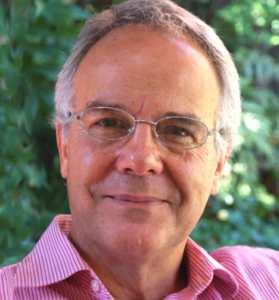
My PhD journeys through different academic disciplines in order to craft a book that whispers the possibility that belief in God is reasonable.
It is PhD by prior publication. The publications include one book (Who Ordered the Universe?) and four papers.
(Nick submitted this thesis for his second doctorate in March 2021)
God is not “on trend” at the moment. He’s been banished from biology by Darwin, and pronounced dead by the philosopher, Friedrich Nietzsche. If this were not enough, he’s been discredited by the disunity and abuses that have occurred within fallible church institutions tasked with representing him.
Despite this, there remains a troublesome concept, which–– although largely dispensed with by modern philosophers––is still appealed to by those working in the hard sciences… and that is the notion of truth.
Scientists rely on scientific truth, and a cosmos being both ordered and rational, to do their work. It’s worth remembering that the universe is under no obligation to be rationally understandable, but remarkably, it is. So, do we shrug with indifference or is this significant?
There are four forces that build the universe. Two of them are the electromagnetic force and the gravitational force. If the ratio of the relative strengths of these two forces had differed by one ten-thousand trillion-trillion-trillionth… there would be no life on planet Earth. Again: should we ask: Is this significant?
In quantum physics: a subatomic particle collapses from a “cloud of probability” into a solid particle only when it is observed. This would seem to point to the primacy of ‘mind’. And when mathematicians see that an equation for the foundational laws of physics is ugly, they know it is wrong. So, do we shrug with indifference, or is this significant?
And sociologically, where authentic Christianity is practiced, it has proved to be transformative of individuals, families, and societies.
It’s fair to say that I wouldn’t have pursued this doctorate without encouragement from my supervisor, Professor Andrew Dutney, and the magnificent Graduate Research team––heroes all. A bit of urgency was added because I’m battling advanced cancer. But, together, we got there!
Why do I research and write about this subject?
I have a background in science and was a research scientist for 11 years. I then trained to be minister in the church, so it was natural for me to explore the interface between science and Christianity. This led to the discovery of an intriguing complementarity between the two disciplines. Both are quests for truth. The difference is that science asks “how” and theology asks “why”. As such, theology frames science and places it in a bigger context. It invites more rigorous thinking than to simply believe that everything came from nothing, as a result of nothing, via a mechanism that has never been discovered – an idea that fractures the law of “cause and effect” that underpins all of science.
My first doctorate explored the dance between science and Christianity in history. This led to further research, particularly into the theological implications of quantum physics. A book (“Who Ordered the Universe?”) and several papers followed. It was therefore a natural step to collate this new material together for submission as a PhD by prior publication – which had as its stated consequence another book, “God and Me: Reasons for Faith” (which is currently looking for a publisher).
So, to encourage you: If you engage in high level research and publish regularly, a PhD by prior publication is a great option. The fabulous Graduate Research team are waiting to help you.

